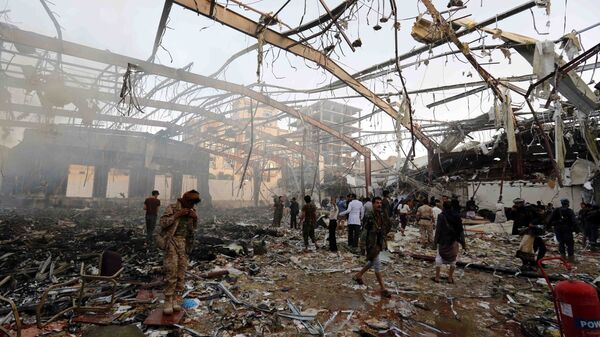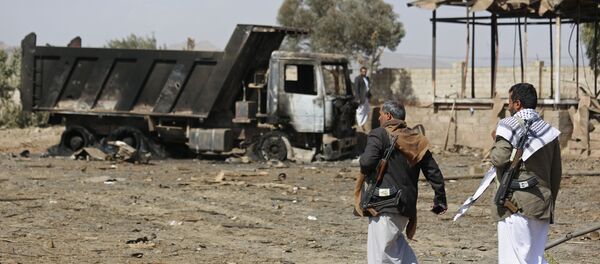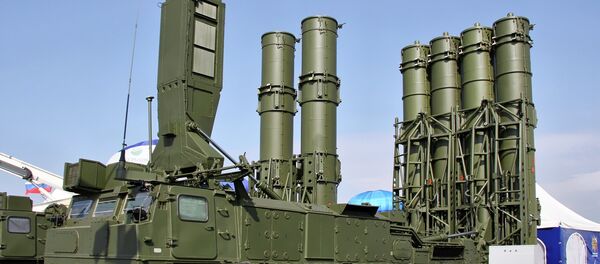On October 9, the Houthi rebels the Saudis are targeting reportedly fired two missiles at the USS Mason. The missiles fell into the water without causing any damage, but the US military nevertheless conducted a retaliation strike, destroying three coastal radar sites that the Pentagon says were used to conduct the missile attack.
Swanson, an anti-war activist and the creator of the warisacrime.org website, told Radio Sputnik that US media has presented the strike that destroyed the radar sites as "obviously" conducted in "self-defense," despite the fact that the US has been using drones to bomb the country for years while shipping obscene amounts of arms to Saudi Arabia.
"The bombs are US, the jets are US… US military is involved in every step, including literally fuelling jets in midair," Swanson said, referring to the weaponry the Saudis are using in their war with Houthi rebels in Yemen.
"With these harmless good intentions, the US had ships off the coast of Yemen, and someone [shot but missed] these ships, and they retaliated in a proper, proportionate and thereby somehow supposedly legal active self-defense," he added. Swanson compared the narrative to the situation in Syria, where deploying ground troops is being considered with exactly the same "self-defense" justification.
"This seems to be a new pattern in the US media speech that the US is able now to defend itself no matter where it is or who it has invaded or what right it has to be there," Swanson said.
With such deep mutual interest, "the US wishes to defend Saudi Arabia in the so-called international community from any allegations of so-called war crimes and abuses and atrocities. So Saudi Arabia sees it as it has nothing to lose in going ahead with escalating this war, and the more people who are killed, the better," Swanson said.
All the while, the US claims to fight terrorism, but the country's involvement in conflicts around the world does exactly the opposite, according to Swanson: more and more terrorist groups, many of them affiliated with Daesh or Al-Qaeda, are emerging in the Middle East, including Yemen.
"In any state the US does [get involved in], we see the same result, which is the exact opposite of what they claim to be working against," Swanson says.
Drone strikes are known to be a part of this process, because US drone strikes are notorious for causing significant civilian casualties. According to Swanson, the US command generally has no idea who their drones are targeting.
"The people are being targeted without [people] being identified. We have people targeted based on a cell phone, we have people targeted based on a profile, of what they are wearing and where they go and so forth," he says, referring to leaked US government documents that reveal how drone targets are selected.
The crisis in Yemen is being covered by US media as a purely internal "civil war," Swanson notes, adding that the media discusses the "dangers of the US being sucked into a civil war" as though the US had not created the war in the first place by providing weaponry for the Saudis to use and helping them use their American arms.
An escalated war in Yemen is a much-desired outcome for some people in the Pentagon and this administration, Swanson says. Hotheads in the US military clearly want escalation in Yemen, Iraq and Syria, and even with Russia, and "this is a very dangerous situation," he added. Ongoing, intensifying war is profitable: it promises more weapon sales the opportunities for US presidents, whoever they are, to posture as victorious commanders-in-chief.
However, Swanson argues, there is no legal, moral or practical justification for escalating the war in Yemen, and the missile attacks against the USS Mason cannot provide one, given the full context of US involvement.
"There is a desire for escalation [in the Pentagon and the White House]… but that is not good enough," he says.





